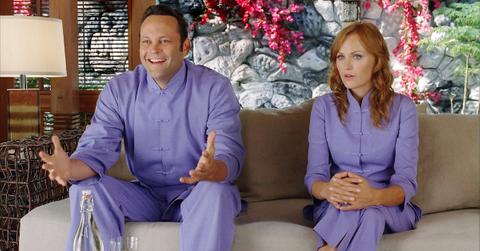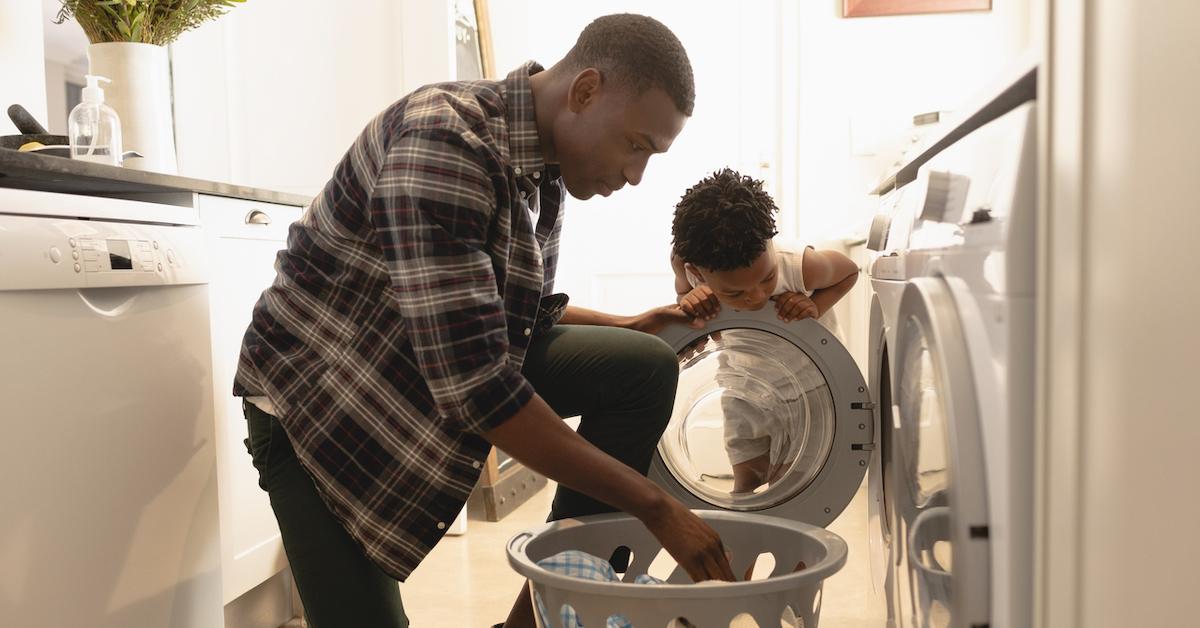13 Mistakes Marriage Counselors See Couples Making
Updated June 10 2019, 2:59 p.m. ET

They say breaking up is hard to do, but as many people in long-term relationships know too well, staying together can be even harder. Marriage counseling is an incredible tool to help couples work through big issues that stand in the way of their happiness. And often, the biggest roadblock is our unconscious patterns and behaviors.
In a recent Ask Reddit thread, professional counselors shared the common mistakes they observe in the couples they see. While this list is no substitute for the time and individual attention you'd get in a professional counseling session, it sure is cheaper!
1. Listen for more than your opening to speak.

Several people noted that one or both halves of a couple will often think they're listening when really they're waiting for their opportunity to speak, which means they aren't truly hearing their partner. One user said, "most people listen to respond and don't listen to hear. This is what I spend the most time teaching couples how to do!"
2. Expecting your partner to read your mind.
Often, people operate under the unrealistic expectation that if their partner was really "the one," they would anticipate your every need. Though this is a pitfall people stereotypically attribute to women, user maxpowerphd warns "This mistake occurs regardless of gender identity, gender expression, sexual orientation, etc. These issues are usually dynamic and complicated in nature and are a result of cognitive / emotional / behavioral / interpersonal patterns of each partner interacting with each other."
3. Keeping score.

"A partnership is a team, not a competition," says natgoeshome. Many counselors noted that couples in crisis seem to keep balance sheets listing everything they do for their partner or every time their partner was wrong or fell short in some way. "This is one of the most common causes of resentment in a relationship," they added.
4. Having an "overactive threat response."
User WhyAreYouUpsideDown says the number one problem they see recurring is an "overactive threat response," to conflict. "People don't stop to turn down their defense mode, and lose sight of love because all their energy is going towards being right or controlling the outcome."
This tendency comes out of fear, "and vulnerability feels too dangerous, so it typically gets expressed as anger, frustration, or rigidity."
5. Avoiding uncomfortable conversations.

Though a divorce lawyer is not a marriage counselor, they also have a keen insight into common marriage mistakes. A user who works in that capacity said, "Talk. About. Money. Talk. About. Sex." These are the two major sources of conflict in marriages, and because conversations on those topics can be vulnerable and uncomfortable, many couples avoid them, to their detriment.
6. Expecting your partner to meet all your emotional needs.
"Expecting one person to be everything for them," says fairiefire. "You need friends, coworkers, a support system, and hobbies." Why? Because being everything to somebody is "exhausting" and leads to codependency.
7. Clinging too much to autonomy.

Just as it's important to have more people in your support network, marriage counselor Negromancers says it can also be toxic when couples "think of themselves as individuals who happen to be together and not as a couple." This attitude can lead people to make decisions that don't consider the impact their decisions might make on their spouse, and it can get in the way of intimacy. "That's not really marriage. That's having a roommate, or perhaps less than that even. Marriage is a union of two people."
8. Waiting too long to get help.
Often, couples don't consider going to marriage counseling until it's too late. If seeing a therapist together is your "last resort," many times at least one half of the couple has already given up on repairing the relationship. "Repeat issues coming up again and again will not resolve themselves. Get help before it's helpless," says DiddlyBoBiddly.
9. Not responding positively to "repair attempts."

According to KaptainKompost's wife, a licensed marriage and family counselor, repair attempts are the "little jokes or olive branches to help overcome issues and arguments." Examples might include making a joke to ease the tension or getting your partner's favorite dessert to smooth things over. Successful couples take the olive branch when it's extended, while people who hang onto resentment in those moments are headed toward trouble.
10. Not anticipating change.
The spouse of a marriage and family therapist shared, "the biggest lesson that my partner and I have discovered over time: people change. You will change. They will change. It is nigh impossible to have the same relationship two years in that you did at the start — don't try to hold onto it." The key is to adapt to those changes rather than trying to force your partner to stay the same or drift away from them.
"That being said, don't try to force a relationship that's inherently dysfunctional," they continued "It's not a mark of failure for a relationship to end. Change seems scary, but the truth is you've already changed."
11. Not voicing your "unspoken family rules."

As Stellaheystella points out, everyone grows up with their own "family of origin" experiences that shape their expectations. The problem arises when couples assume their partner grew up with the same rules. For example, Stella says they can apply to things as simple as how to do laundry to "family problems stay in the family," meaning it's not OK to air the more figurative "dirty laundry" outside of the family.
"Everybody has these rules, talking about them and uncovering them (without judgement) will go a very long way in maintaining and deepening connection."
12. A lack of gratitude.
Some people think "I love you" is the most important phrase you can say to your partner, but as maxpowerphd points out, it's actually "thank you." Happy couples show their appreciation for each other.
"Experiences and expressions of gratitude can have a really positive effect on psychological well being as well as relational strength," they said.
13. Neglecting intimacy.

Sex is an important part of romantic relationships, but as a couple counselors on the thread point out, there are many ways to express intimacy with your partner and all are important.
"Physical intimacy can come from many different sources and doesn't need to be sexual," says Artonius. "Good sex is probably one of the easiest ways to create intimacy but it is far from the only way. I like to think of creating intimacy like creating a space. You are creating a safe, private space for you and your partner to be Together."